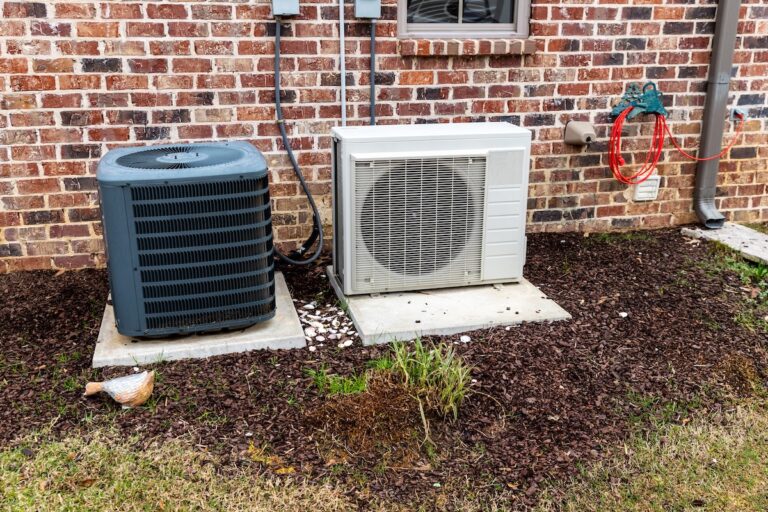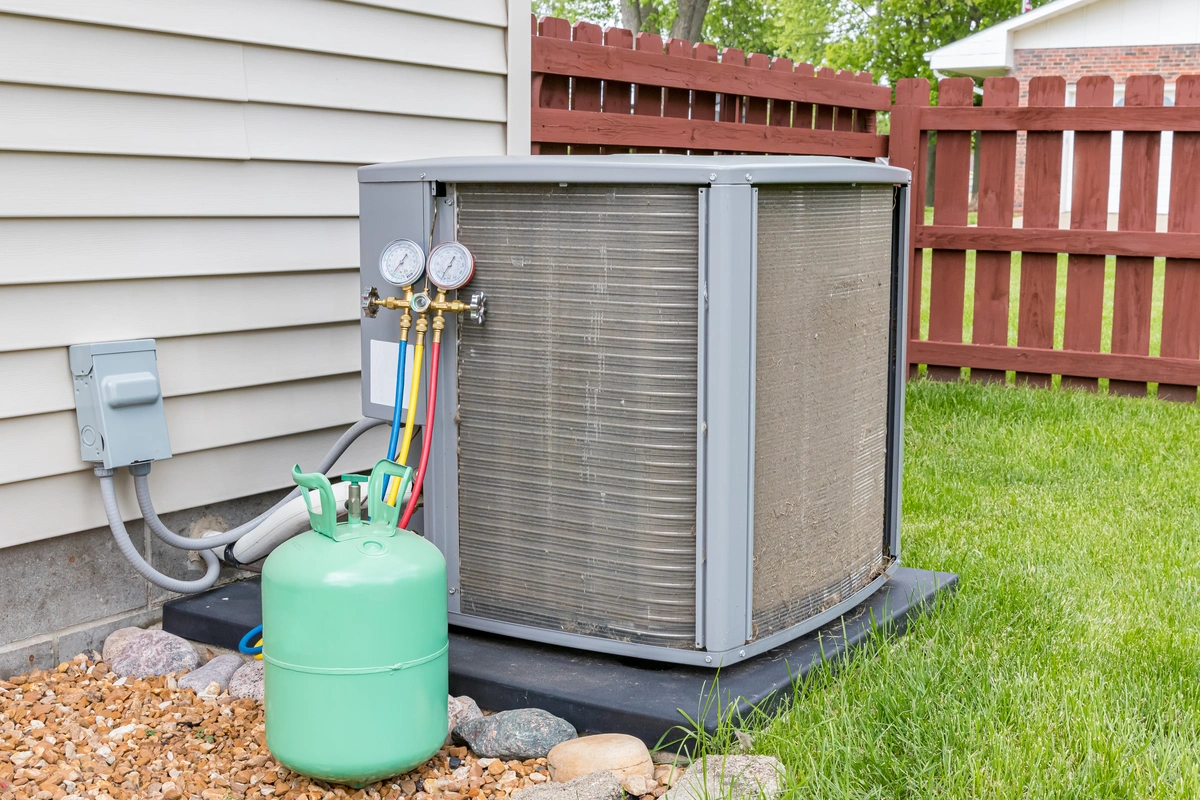
If you’re a homeowner looking to maintain or replace your air conditioning system, you’ve likely come across the term “AC refrigerants.” But with so many home AC refrigerant types available, understanding which one is right for your system can feel overwhelming. Refrigerants play a crucial role—they’re the substances that cool down the air circulating in your home. Picking the wrong type can mean decreased efficiency, increased costs, or even harm to the environment.
In this guide, we’ll break down everything you need to know about home AC refrigerants, covering topics like:
- What refrigerants do in your AC system
- The main types of home AC refrigerants
- How to choose the right refrigerant for your home
🤔 What Do Refrigerants Do in Your AC System?
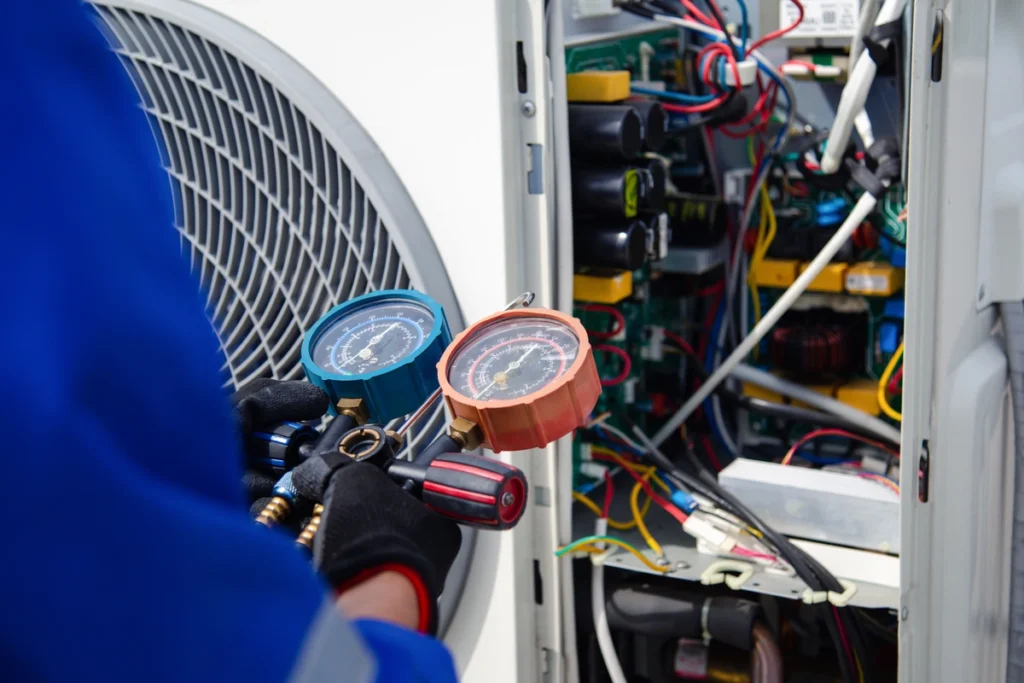
Refrigerants are specialized chemical compounds that are essential for your air conditioning system to function. They work by absorbing and releasing heat, allowing your AC to cool your home efficiently. These substances cycle through your AC system, transitioning between gas and liquid forms as they move between the indoor and outdoor units. This continuous cycle is what keeps your home comfortable, even on the hottest summer days.
Key Points to Remember:
- Always use the correct refrigerant type for your AC system; using the wrong one can cause inefficiency and potential damage.
- Regular maintenance is crucial to check for leaks and ensure the refrigerant levels are adequate.
- If you suspect a refrigerant leak, contact an HVAC professional to handle repairs safely and responsibly.
👉 3 Types of Home AC Refrigerants
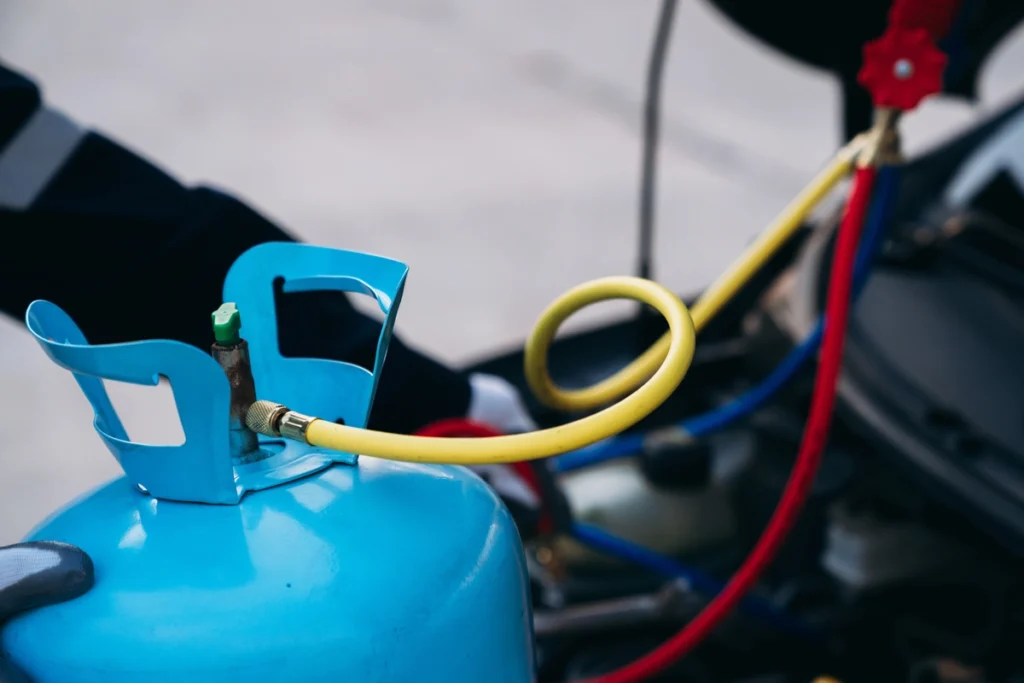
When it comes to residential air conditioning, there are a few main refrigerant types you’ll hear about. Here’s a closer look at each one so you can understand its benefits and uses.
1. R-22 (Freon)
R-22, commonly known as Freon, dominated the air conditioning industry for decades as the go-to refrigerant due to its efficiency and reliability. It was especially popular in systems installed prior to 2010, where it provided consistent cooling performance even under high-demand conditions. However, as scientific understanding of environmental issues grew, R-22 was identified as a significant contributor to ozone depletion. Under the Montreal Protocol, an international treaty designed to protect the ozone layer, the production and use of R-22 were gradually phased out.
Although older air conditioning systems still rely on R-22, its availability has drastically declined over the years. This limited supply has made sourcing R-22 both difficult and expensive, driving up maintenance and repair costs for older systems. In addition to its ozone-depleting properties, R-22 also has a high global warming potential, making it a major environmental concern. Today, homeowners and businesses using systems with R-22 are encouraged to retrofit their units or upgrade to models using modern, eco-friendly refrigerants. The phase-out of R-22 reflects the industry’s shift toward more sustainable cooling technologies.
2. R-410A (Puron)
R-410A, widely known by its brand name Puron, emerged as the replacement for R-22 and quickly became the standard for air conditioning systems manufactured after 2010. Unlike R-22, R-410A does not contain chlorine, which means it does not cause ozone depletion. This refrigerant also offers superior energy efficiency, allowing air conditioning systems to operate more effectively while consuming less energy, which can lead to cost savings for homeowners over time.
Another advantage of R-410A is its ability to handle higher pressures, enabling modern air conditioning systems to achieve better cooling performance compared to older systems that used R-22. This makes it a popular choice for both residential and commercial applications. However, while R-410A is far less harmful to the environment than R-22, it is not without its drawbacks. It still contributes to global warming, as it has a relatively high global warming potential (GWP) compared to newer alternatives like R-32. Despite this, R-410A remains a reliable and widely adopted refrigerant, bridging the gap between older, environmentally harmful refrigerants and the next generation of sustainable cooling solutions.
3. R-32
R-32 represents the latest advancement in refrigerant technology and is quickly becoming the refrigerant of choice for environmentally conscious cooling systems. With a global warming potential (GWP) that is significantly lower than both R-22 and R-410A, R-32 has a much smaller environmental footprint, making it a top choice for manufacturers and consumers alike. Additionally, R-32 is highly energy-efficient, which not only reduces greenhouse gas emissions but also lowers energy bills for homeowners over the long term.
Many air conditioning manufacturers have begun designing systems specifically for R-32, recognizing its potential to lead the industry into a more sustainable future. Compared to R-410A, R-32 systems use smaller refrigerant quantities to achieve the same level of cooling performance, further enhancing their efficiency and eco-friendliness. R-32 also has better heat transfer capabilities, allowing air conditioning units to cool spaces more quickly and effectively.
One of the key reasons R-32 is gaining widespread adoption is its alignment with global efforts to combat climate change. As countries and industries look for ways to reduce carbon emissions, R-32 provides an ideal solution for those seeking high-performance cooling with minimal environmental impact. While its adoption is still growing, R-32 is set to become the standard in next-generation air conditioning systems, paving the way for more sustainable cooling technologies.
⚖️ How to Choose the Right Refrigerant for Your Home
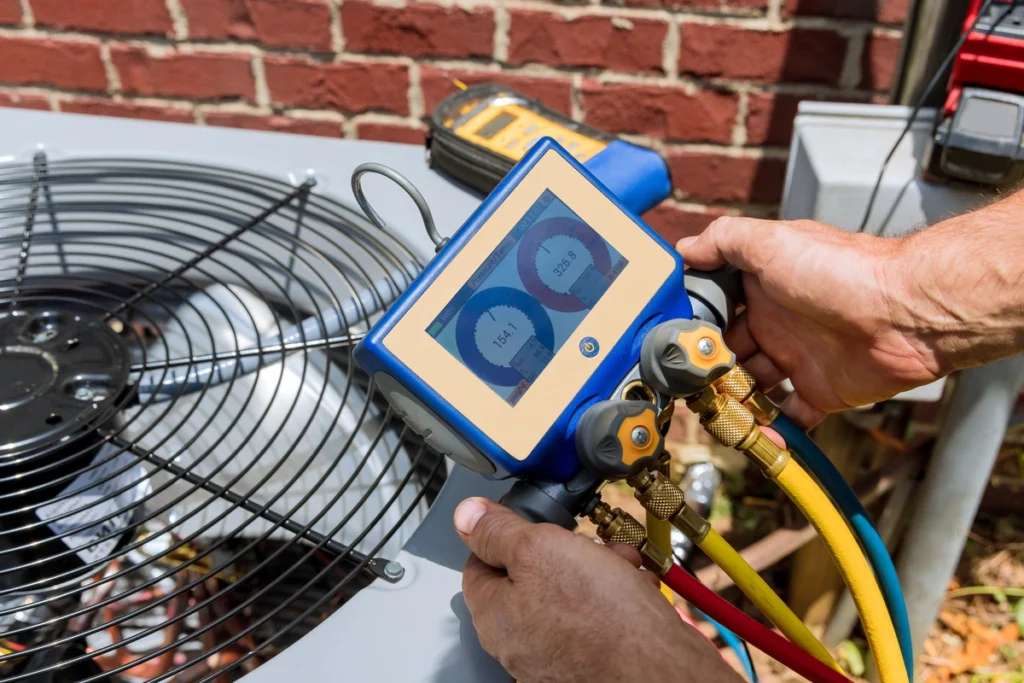
Selecting the right refrigerant for your AC system comes down to a few critical factors. Here’s a checklist to guide your decision.
1. Compatibility with Your Existing Unit
Before purchasing refrigerant, verify your AC system’s compatibility. Older systems often use R-22, while newer models rely solely on R-410A or R-32. Mixing different refrigerants can severely damage your unit, leading to costly repairs or replacements. Always check your system manual or consult a professional to avoid compatibility issues.
2. Environmental Impact
For eco-conscious buyers, refrigerants like R-32 are a better choice. They provide excellent cooling efficiency while minimizing environmental harm due to lower global warming potential (GWP). Many governments are phasing out high-GWP refrigerants, making environmentally friendly options like R-32 not only better for the planet but also compliant with future regulations.
3. Energy Efficiency
Modern refrigerants like R-410A and R-32 are designed for better energy performance. They cool and heat more effectively, reducing strain on your AC system. Over time, this improved efficiency translates to lower electricity bills and extended equipment life, saving you money in the long run.
4. Cost and Availability
Older refrigerants like R-22 are becoming increasingly expensive due to production bans and regulations. While still available in limited quantities, their high cost makes them impractical. Opting for refrigerants such as R-410A or R-32 is usually more economical and ensures easier availability for servicing your unit.
5. Upgrading to a New AC System
If your AC system uses outdated refrigerants like R-22, consider upgrading to a modern unit. Newer systems compatible with R-410A or R-32 offer improved energy efficiency, reduced environmental impact, and better reliability. Although the upfront cost may be higher, upgrading ensures long-term savings and hassle-free performance.
❄️ AC Refrigerant Guide
Choosing the right refrigerant for your home’s air conditioning system doesn’t have to be overwhelming. At Thelen Plumbing, Heating, and Air, we combine years of HVAC expertise with a commitment to eco-friendly, efficient solutions tailored to your needs. Whether you need a system upgrade, a refrigerant replacement, or routine maintenance, our team is here to ensure your home stays cool and comfortable all year round.
Trust Thelen Plumbing, Heating, and Air for reliable, professional service you can count on. Ready to get started? Contact us today to schedule your consultation!
Unlock Our Limited-Time Deals!
Take advantage of our offers on AC tune-ups, new installs, repairs, and more.
We Can’t Wait to Help Your Home!
"*" indicates required fields



